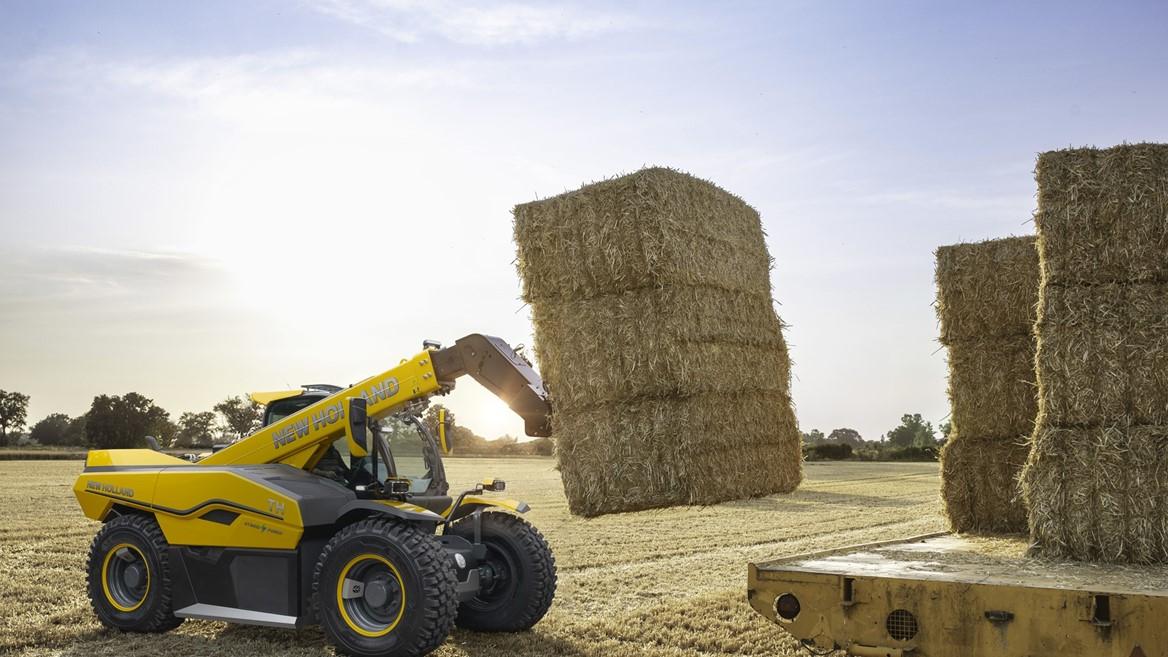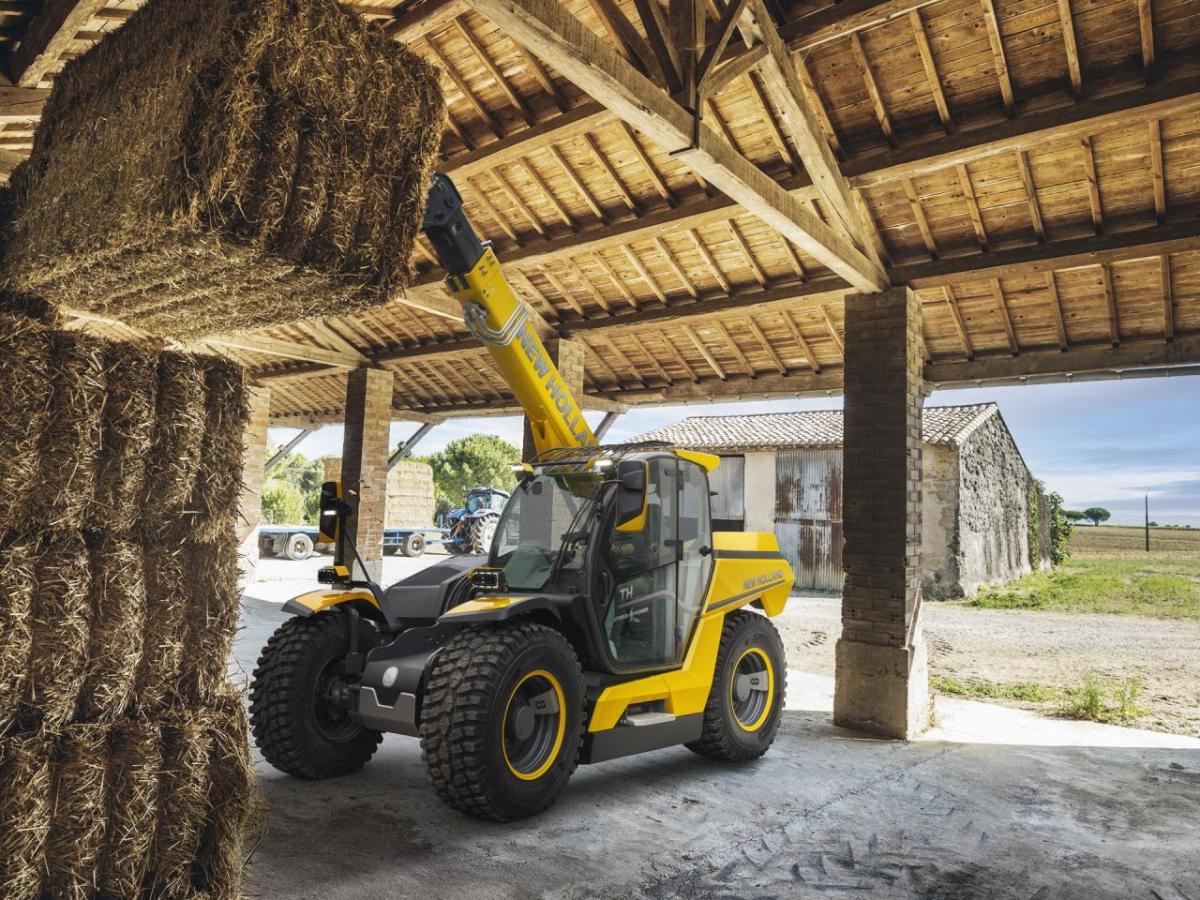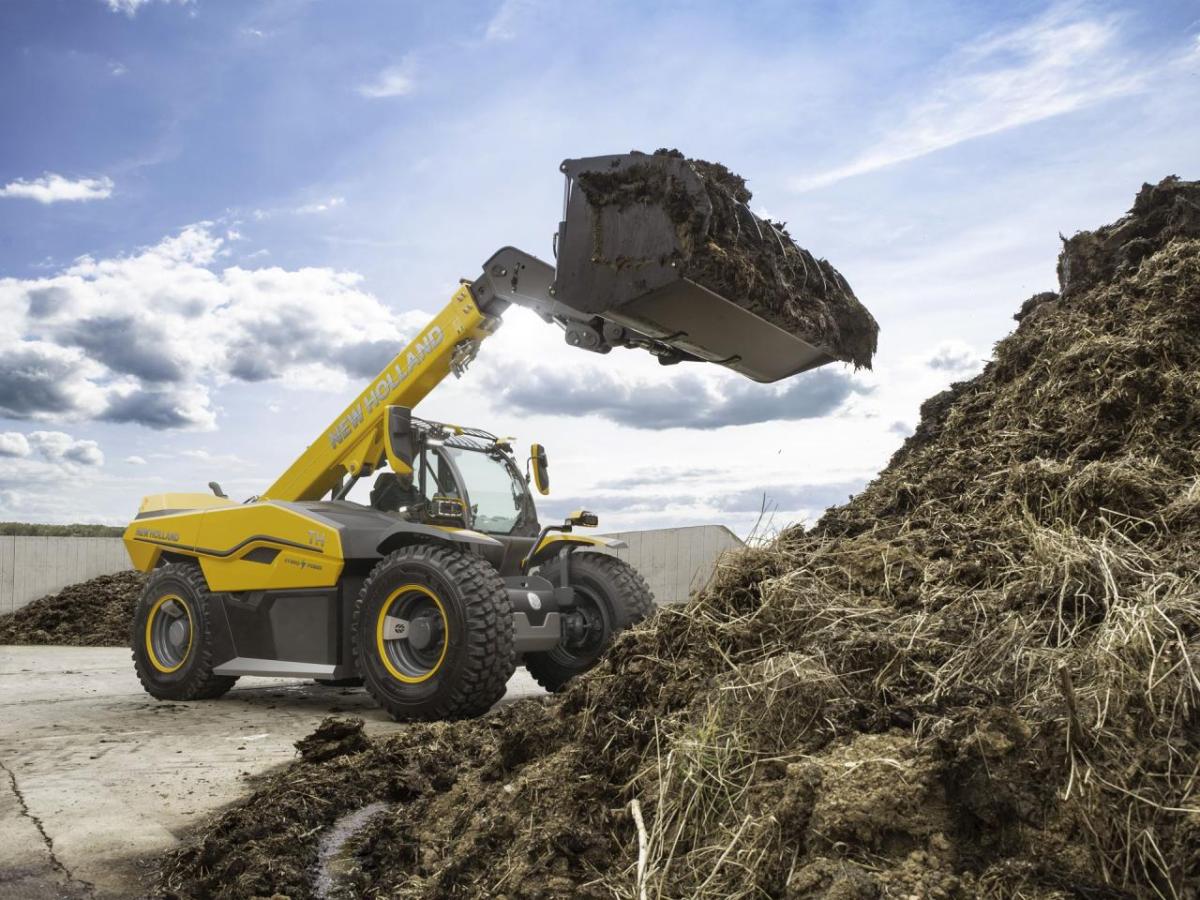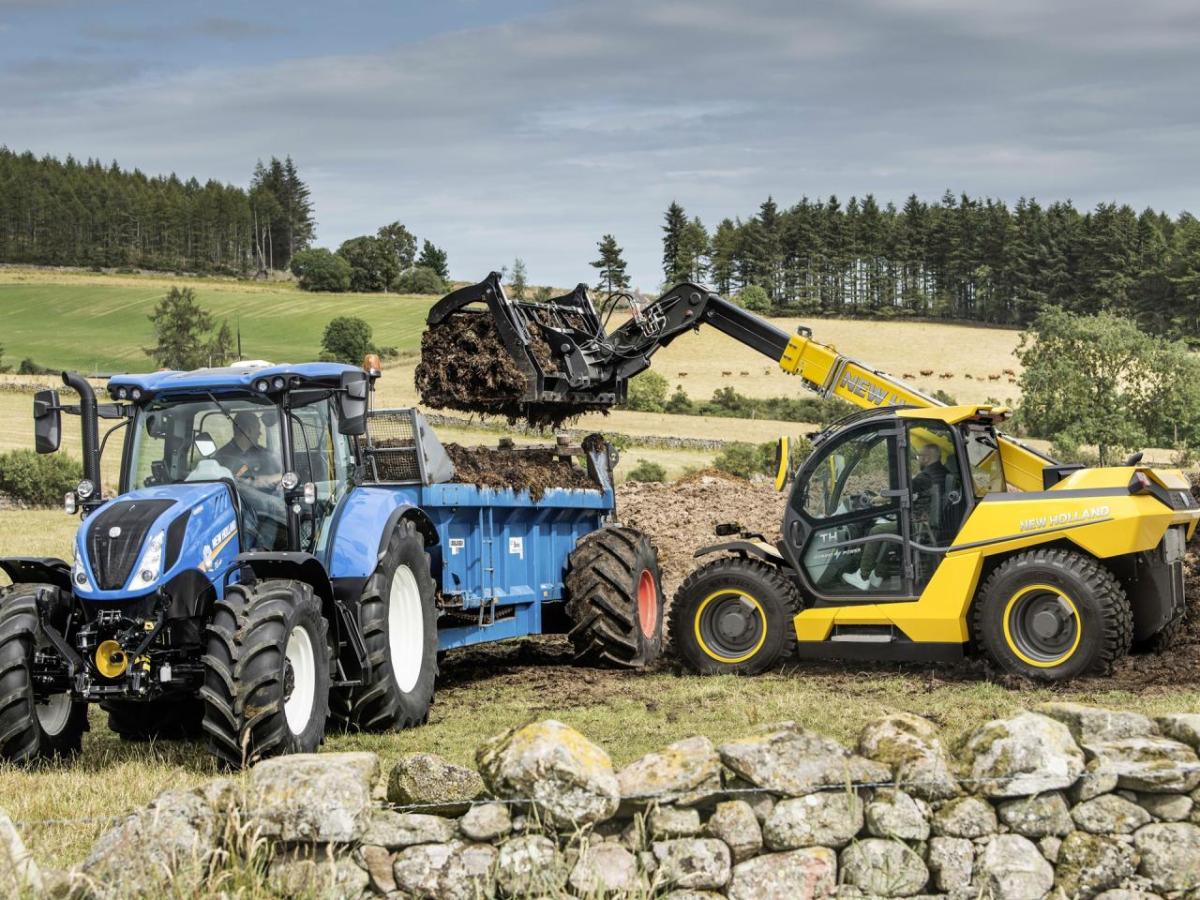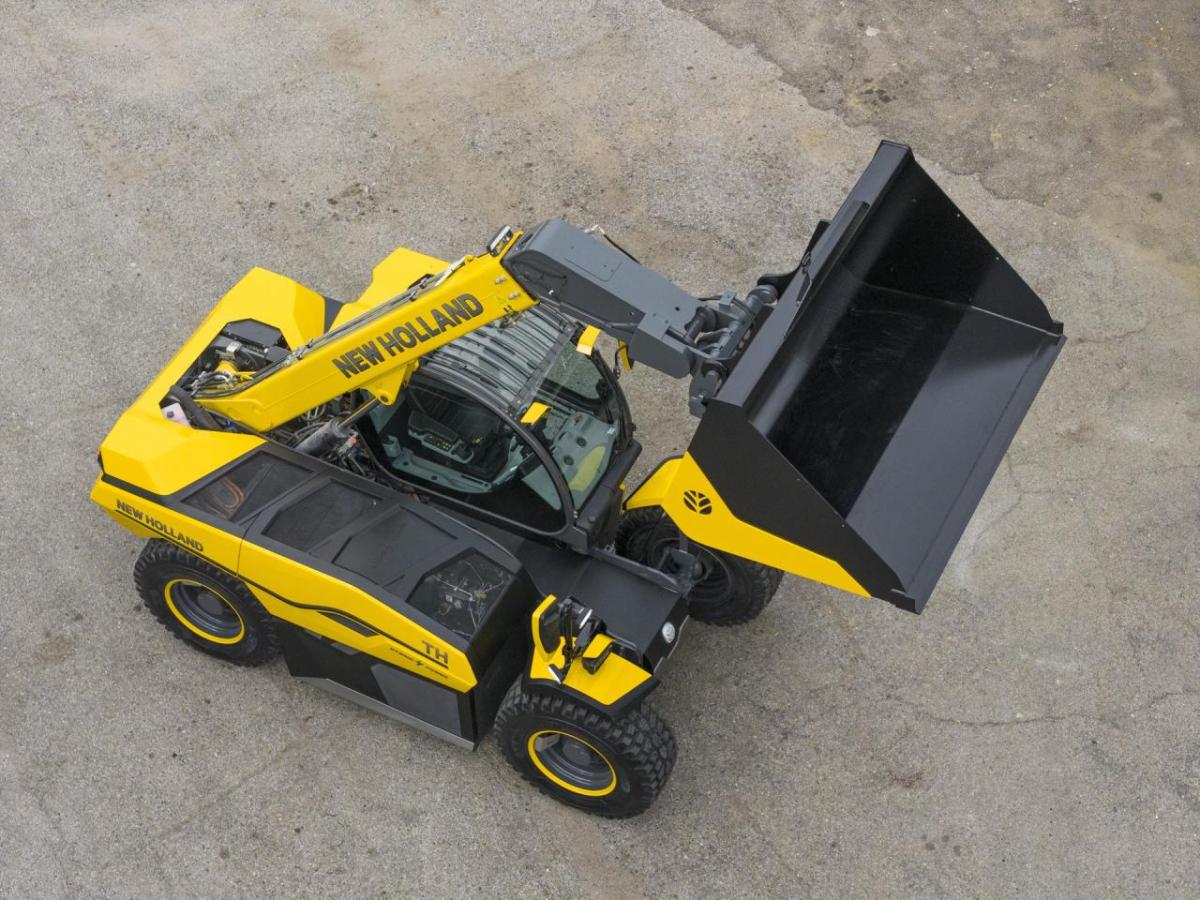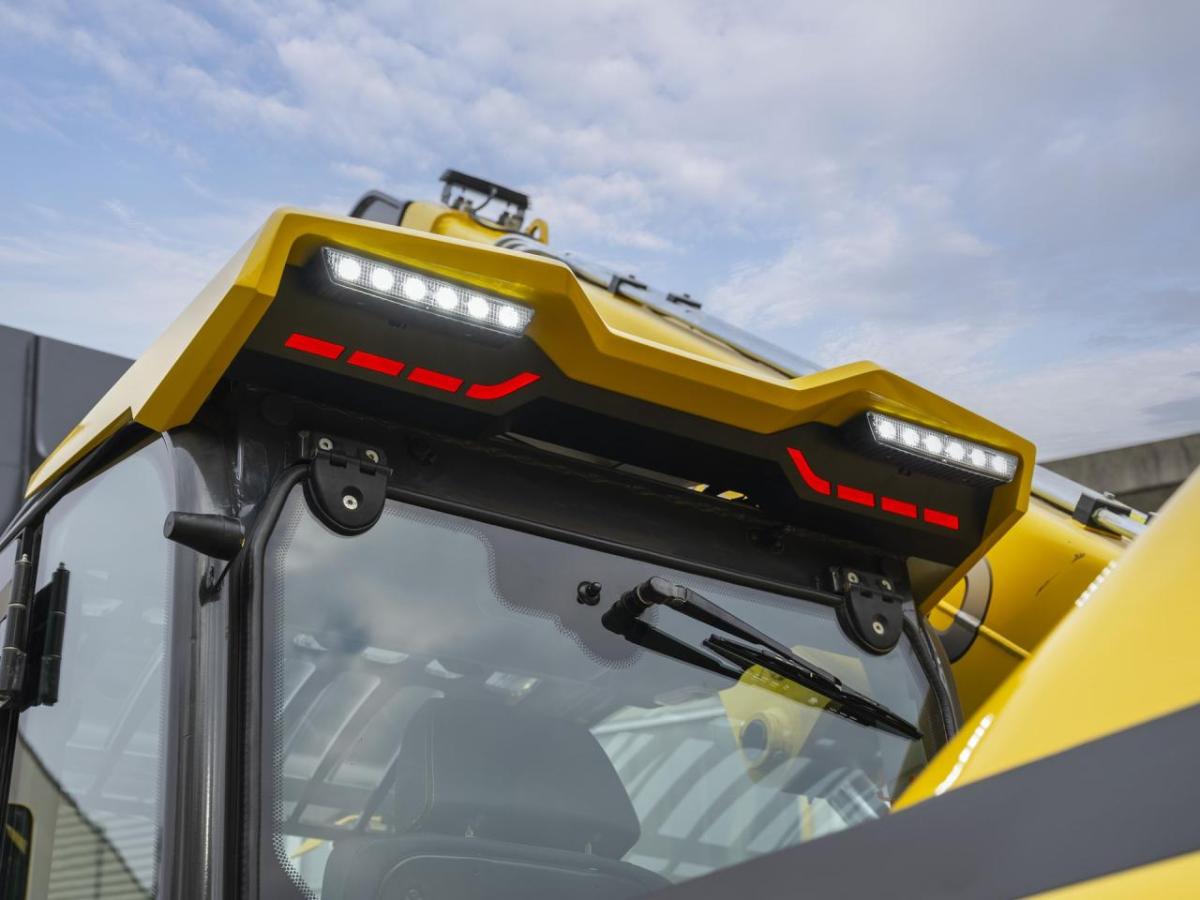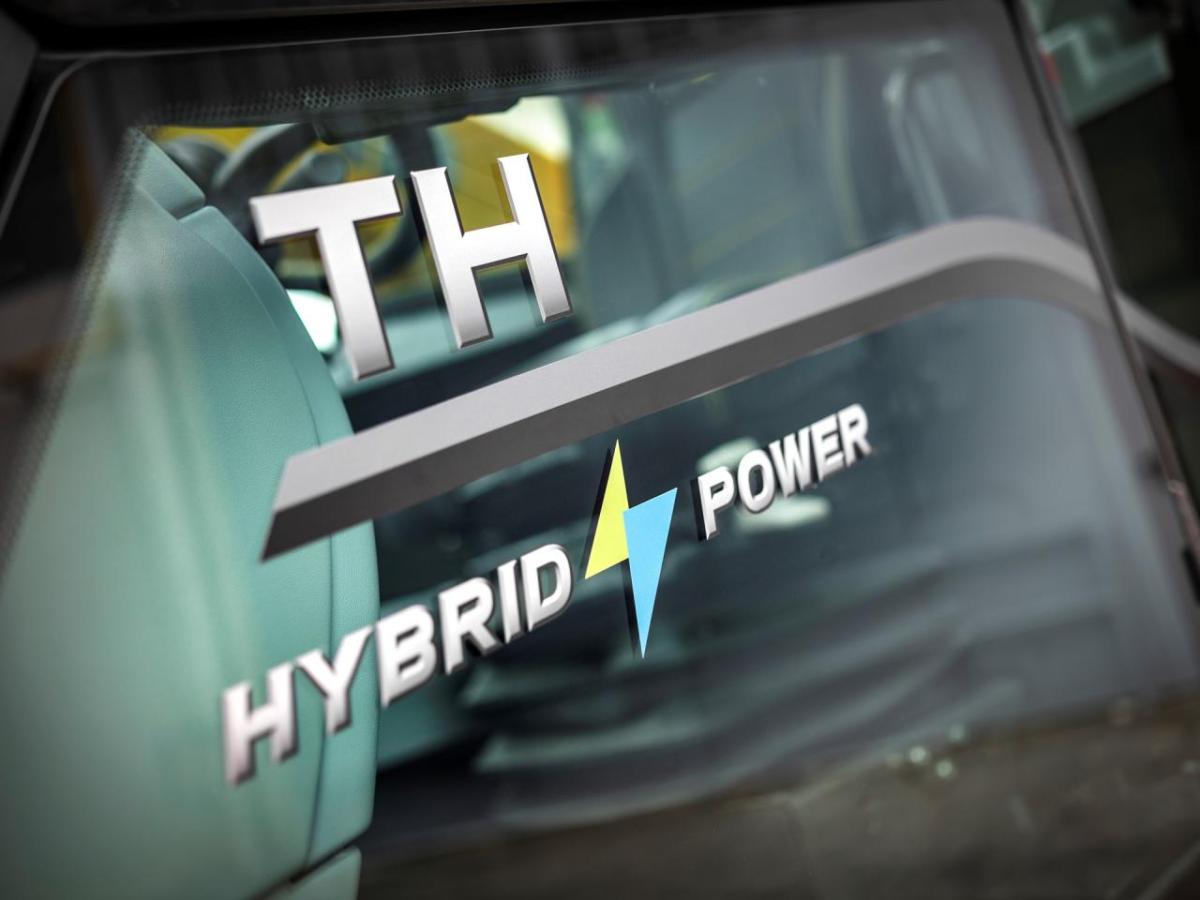Hybrid Prototype Telehandler Offers Practical, Sustainable Power for Materials Handling
At Agritechnica 2025, CNH brand, New Holland is unveiling a hybrid full-size telehandler prototype that redefines practicality in alternative-fuel farm equipment. This breakthrough combines the autonomy and power farmers need—without the run-time limitations of battery-only machines or the reliance on fossil-fuels of diesel models.
Its maximum lift height/weight figures of 7-9m/4.2t and industry-first combination of electric and natural gas as power sources position it as the first machine of its kind designed specifically for typical agricultural applications. It achieves this without compromising lift capacity, height, power, or autonomy compared to a typical mid-size farm handler.
Currently at a testing phase, the machine features an electric drivetrain connected to a supplementary battery/electric power system. It operates fully electrically for up to four hours on medium-heavy tasks and up to six hours on light-duty cycles. During heavy-duty work, a four-cylinder F28 methane gas engine from FPT provides supplementary power and simultaneously recharges the battery. Flexibility is further extended through battery fast-charging.
The electric-methane configuration makes all-day independent operation possible without refueling/recharging. Electricity generated on-farm via solar or anaerobic digestion (AD) plants can also be used to recharge the batteries, for fully renewable fueling. This also means that AD plants using farm-grown crops and waste can fuel their own machine, using technology developed by Bennamann, in which CNH owns a majority stake.
The 2.8-litre engine generates 75kW/100hp and operates at a fixed speed to minimize fuel consumption while maintaining performance, helping to extend service intervals and maximize efficiency. There is 84kW/112hp rated output available at the hydraulic pump and 115kW/154hp rated available for traction. A 70kWh battery provides electrical power in both hybrid – when the engine speed is maintained at its most efficient working point – and full electric modes.
Field tests showed up to 70% saving in energy usage compared to diesel alternatives, and 30% better performance, efficiency and autonomy than a comparable diesel-powered vehicle during typical material handling operations.
The electric powertrain improves productivity: traction control operates independently from attachment control, shuttling response is adjustable, and there are fewer moving parts – which also reduce vibration and enhance both reliability and comfort. Operators and those around the handler – including animals in livestock buildings – also benefit from minimal noise and zero emissions.
View original content here.

